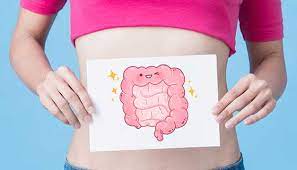Everyone at some point will experience digestive issues, such as bloating, gas, constipation, and any other stomach pain. Having any of these is never fun. It’s even worse for some people who experience it most often.
More than half of America’s population live with digestive problems, and dealing with it every so often is just a sign of an unhealthy gut.
How to Know If You Have an Unhealthy Gut
Scientists point to the gut microbiome as one of the most crucial elements for a healthy digestive system. Each person has about 300 to 500 different species in their guts, which are all necessary for health.
Having an unhealthy gut isn’t just about experiencing constipation, gas, diarrhea, bloating, and many other signs of an upset stomach. This includes difficulty eliminating waste and digesting food. You know you have an unhealthy gut when you experience these signs too:
High cravings for sugar
If you notice yourself craving sugar for snacks or meals, then it’s likely you have gut problems. Consuming more sugary foods and drinks can decrease your healthy gut microbiomes, leading you to crave more sugary foods and beverages.
Irritated skin
Eczema is just one of the skin conditions commonly related to having gut issues. If you have food allergies or a poor diet, it leads to inflammation in your gut, resulting in a leak of certain proteins out of your body. This can then irritate your skin, usually leading to eczema.
Food intolerance
Lacking good gut microbiomes, your stomach may not be able to digest certain foods, causing diarrhea, gas, bloating, stomach pain, and nausea.
Unplanned weight changes
One may either experience weight loss or gain even without exercising or changing diet. This is because an unhealthy gut can hinder your body’s ability to regulate blood sugar, store fat, and absorb nutrients.
Chronic fatigue and sleep disturbances
Having an imbalanced gut can result in constant fatigue and insomnia since serotonin comes from the gut, which is what’s responsible for sleep and mood.
Having a Healthy Gut Is Better Than Treating It Most Often
As always, prevention is better than cure. Take good care of your guts, and it will take good care of you. It starts with pampering yourself, such as managing your stress and getting enough sleep.
It helps that you eat slowly too to encourage full digestion and nutrient absorption. Stay hydrated all the time as well to keep your intestines’ mucosal lining healthy.
You can also opt to change your diet. Reduce your consumption of high-sugar, high-fat, and processed foods and beverages. Instead, eat more plant-based foods and even add probiotic or prebiotic supplements to your diet if you don’t have bacterial overgrowth medical conditions.
Probiotics and prebiotics cannot be underestimated. These promote the good bacteria in your guts, but choose high-quality ones to get the best benefit.
Work on following these to improve your guts and avoid recurring digestive problems. If you want to minimize your medication intake, then you can take alternative natural remedies.
Natural Remedies for Digestive Problems
Here are some alternative ways you can deal with your digestive issues:
Abdominal self-massage
You can either massage yourself or get onto a massage spa. Abdominal massage, in particular, can reduce symptoms such as pressure, cramping, tightness, and bloating.
Follow the tips from Michigan Medicine to do the abdominal self-massage the right way.
Not lying down
As much as possible, avoid lying down. Your stomach’s acid will more likely travel backward than upward in a horizontal position, causing heartburn.
If you should lie down, prop your head, chest, and neck, preferably at a 30-degree angle.
Use a heating bag or take a warm bath
You can take a warm bath or apply a heating pad or bag to your stomach until it goes cool. These can ease your indigestion and relax the tension in your muscles.
Stay hydrated
Especially for those with digestive issues such as diarrhea and vomiting, drinking lots of water is crucial since these conditions can easily lead to dehydration.
Home remedies
You can make use of ginger, mint, cinnamon, cumin, cloves, figs, aloe juice, yarrow, basil, licorice, spearmint, rice, bananas, and coconut water, all of which can be found in your home. All these may have particular preparation methods first before they can be ingested.
When to See a Doctor
If you experience recurring digestive problems, visit your doctor. Watch out for other symptoms such as inability to pass gas, difficulty swallowing, bloody vomit or stool, fever, arm pain, a lump in the stomach or abdomen, and more.
